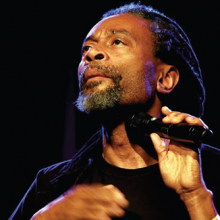worry
There’s a photo he carries for long journeys
like this one, for trips on loaded market lorries
where the passengers take their seat, perching
on top of cargo, or sitting on crude benches
inside the buses coming from Sudan with names
like “Best of Luck” or “Mr. Good Looking.”
You know that time when the apostle Paul says “don’t worry about anything” I sometimes wonder if he could get away with that today.
For example: Did you know that Congress recently had an approval rating of 9 percent? To put that in perspective, 11 percent of citizens want the Unites States to be a Communist country . It’s a lower rate than people who would approve of polygamy! While this is sort of hilarious, it’s also pretty depressing.
Thank God (literally) there isn’t a poll on the approval rating of the church, but as a ministry leader in Seattle, trust me when I say that what makes the headlines is not what anyone would call good news. Throw into the mix the global unraveling we are witnessing in the Middle East, Iraq, and our own treatment of immigrants, and it’s sort of difficult to keep our collective chins up.
So yes, it might feel tough to log onto Facebook, or read the New York Times these days and feel like there is no reason to be anxious. Good thing for us the verse doesn’t end as a pejorative blanket statement. You know, the kind that so often feels like a cheap mandate to simply ignore reality? Instead, it names that that there lots for reasons for why we are surrounded by anxiety. But, in the eloquent paraphrase of the Philippians passage by Eugene Peterson, we are invited to:
“let petitions and praises shape your worries into prayers, letting God know your concerns. Before you know it, a sense of God’s wholeness, everything coming together for good, will come and settle you down.”
IN THE PAST 150 years, the songs historically known as “Negro spirituals” have worn many costumes. They emerged, of course, from the Deep South during the days of slavery, when songs such as “Every Time I Feel the Spirit” or “Wade in the Water” were first sung by anonymous psalmists wielding hoes or pulling cotton sacks. Since that time they’ve been dressed in the style of the European art song, sung as grand opera, or even faithfully mimicked by well-meaning white folk singers.
The spirituals entered the mainstream of American culture through the performances of the Fisk Jubilee Singers from Fisk University in Nashville who, fresh out of slavery themselves, toured the North in the 1870s. In the 1950s and ’60s, the old standards were resurrected, and slightly rewritten, as marching songs for the African-American freedom movement and then echoed across the world as anthems for human rights from South Africa to Northern Ireland to Eastern Europe.
After all that, the spirituals can probably even survive being remade into “smooth jazz,” which is more or less what happens to them on Bobby McFerrin’s new album Spirityouall. Readers of a certain age might remember McFerrin as the guy who, in 1988, conquered the known pop music universe with an airheaded ditty called “Don’t Worry, Be Happy.” The tune was so infectious that it should have had a warning label from the Centers for Disease Control, but instead it dominated radio, won some Grammys, and, to McFerrin’s eternal horror, was used as theme music by the George H.W. Bush presidential campaign.


